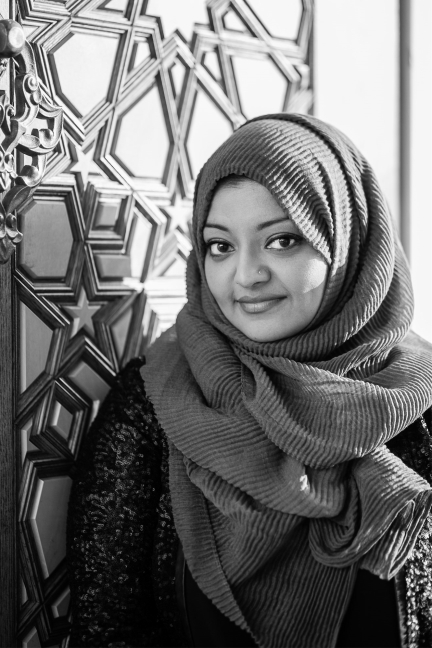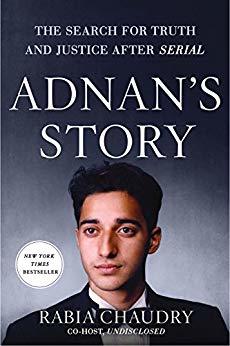Rabia Chaudry

Q&A with The Innocence Project (Innocence Blog): August 2016
In 2014, attorney and writer Rabia Chaudry contacted producer Sarah Koenig at This American Life to pitch a story about the 1999 murder case of Maryland teenager Hae Min Lee. The result was Serial, one of the most successful podcast ever produced. The series—downloaded 100 million times—put Adnan Syed, the young man convicted of the 1999 murder, in the spotlight, and highlighted aspects of the investigation that Syed’s supporters, including Chaudry, say reveal his innocence.
But Chaudry says that Serial didn’t tell the whole story. In response, she’s released Adnan’s Story: The Search for Truth and Justice After Serial, her new book which delves into important case details not covered in Serial. The book also includes written recollections and insights from Syed himself.
Earlier this week, Chaudry spoke with the Innocence Blog about her reasons for writing the book and how Serial got some of the story wrong.
Innocence Blog: You have been an incredible champion for Adnan. Did you ever think, back in 2000 when he was convicted, that you would eventually play such an important role in his case?
Rabia Chaudry: Absolutely not. I was in law school [when the case started]. I had no experience in criminal law—not then, not even now really. The thing that I hoped to do, after the conviction especially, was help the family select good attorneys.
I really had a lot of confidence in the system—that there had been a tremendous mistake. Especially after Cristina Gutierrez (Adnan’s trial attorney) was disbarred and became ill. I thought: “The Maryland judiciary system knows—everybody knows—what she went through and how that must have affected her clients.” There was a part of me that thought, “How could those cases that she had in her last couple of years not be given a little more attention to see what really went wrong?”
But I never imagined that it would be like this. And I didn’t want it to be like this. I wanted the system to work. It’s ridiculous that it would take this long. And it’s crazy that it would take so much media and so many resources and investigators to correct something like this.
IB: Knowing all of the information that was out there—with Serial, with your podcast Undisclosed and your blog—what then spurred the book?
RC: Actually, it started before the Undisclosed podcast even began. When Serial was airing I was blogging every week in response to it. And I had been writing for many years for different outlets and across a spectrum of issues—a lot of political issues and issues around bigotry and civil rights. There was a literary agent who read my blog and had seen my other writing and said, “You should consider writing a book.” And I said, “Oh, that would be great. I’d love to write a book. I’ve always wanted to write a novel.” And she said, “No, I mean about Adnan’s case.”
I had never considered it. It was overwhelming. I didn’t know the case as well as I needed to, even at that point. The case documents—I hadn’t seen them in many, many years. They had gone from Adnan’s home to Sarah Koenig. And she had given me an electronic copy once, but for me to have my daily full-time job, plus my family, plus a blog—I didn’t have the time to go through the documents.
So when the agent contacted me, I said, “Absolutely not. I can’t do it. And, it would feel a little exploitive. I’m not comfortable with that.” But then she raised an excellent point.
She told me that somebody was eventually going to write the book. It could be me—someone who knows Adnan, knows the lawyers, knows Sarah Koenig, knows more about the story than anyone could know, and who also is very concerned about protecting Adnan’s interest. Or, it could be another journalist. “It’s your choice,” she said. So, I talked to Adnan about it and told him that she made a good argument. He told me that if I wanted to do it, I had his permission.
I ended up writing 800

